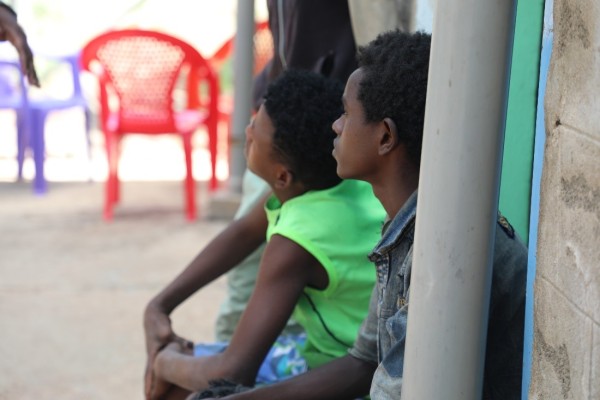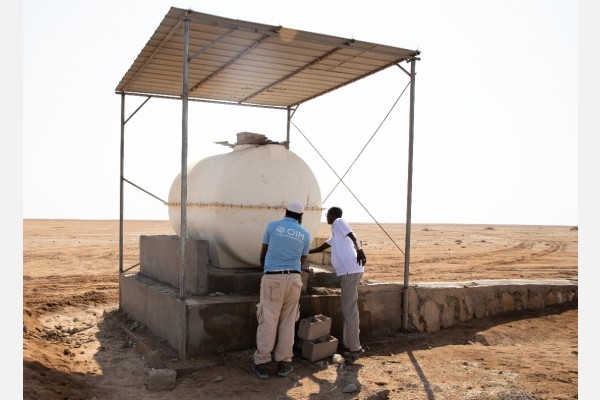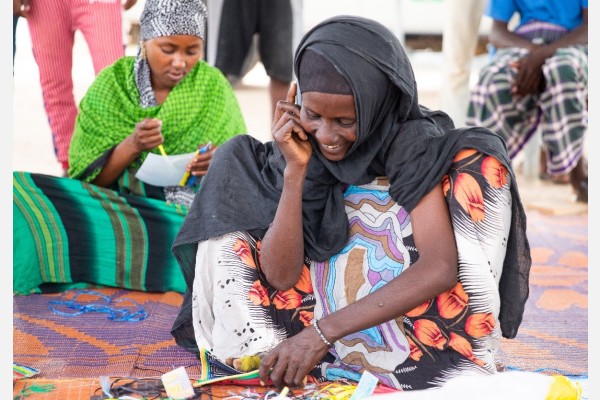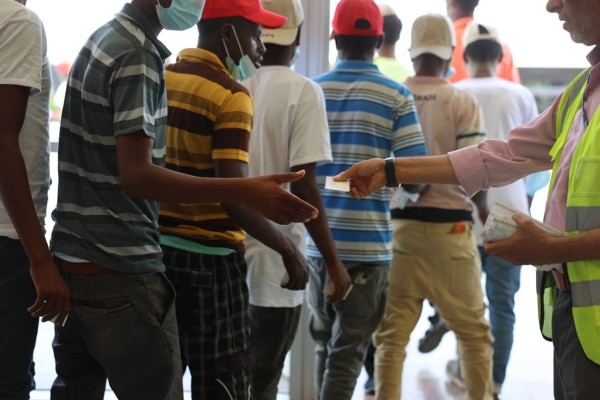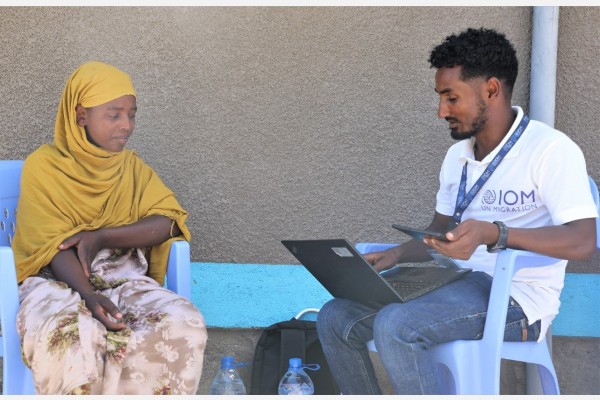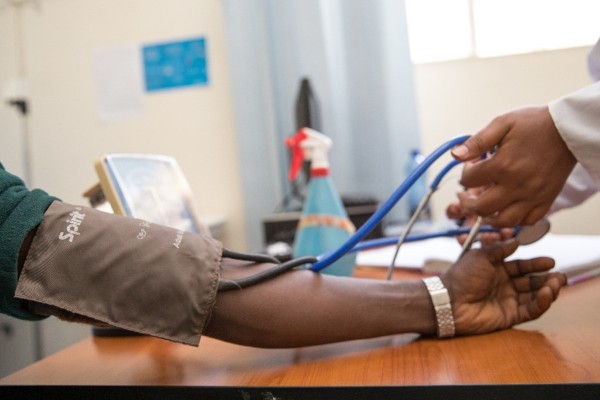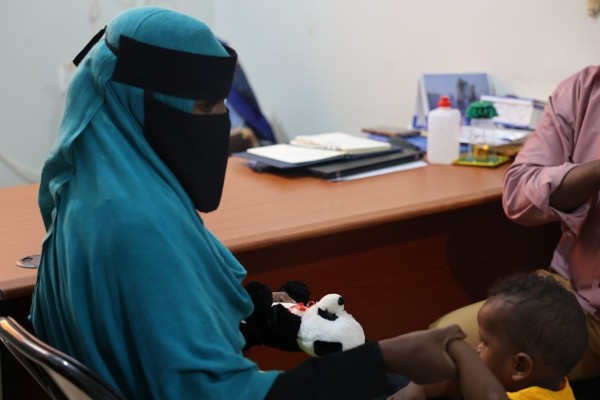Inventaire des pratiques
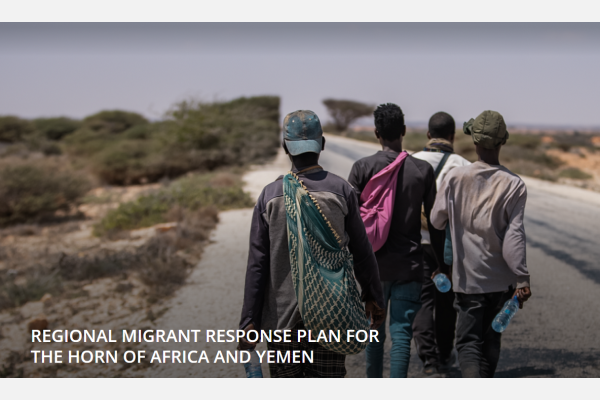
Regional Migrant Response Plan (MRP) for the Horn of Africa and Yemen
Dates
Type de pratique
Résumé
The Horn of Africa (including the countries of Ethiopia, Djibouti, and Somalia) and Yemen have historically seen significant human mobility into and out of the region. In recent years, conflict, diminished economic opportunities, severe climatic events, and famine have driven significant migration flows from Horn of Africa countries along the Eastern Route going from the Horn of Africa to the Arab countries in the Gulf, with many people heading towards the Kingdom of Saudi Arabia in search of economic opportunity. Along their journey, people moving irregularly along the Eastern Route are subject to numerous potentially life-threatening risks, including various forms of violence perpetrated by smugglers, trafficking, drowning while crossing to Yemen, and lack of clean food, water, and safe living conditions. [1] Many migrants, upon reaching the Gulf countries, face arbitrary detention, abuse, and exploitation, trafficking, or expulsion back to their countries.
The regional MRP for the Horn of Africa and Yemen is an inter-agency and inter-regional plan bringing together 48 appealing organisations to provide urgent, life-saving humanitarian and protection support, and enhance access to basic services, as well as medium- to long-term actions aimed at addressing the drivers of migration for migrants and host communities. Life-saving humanitarian assistance includes the provision of food and/or nutrition assistance, non-food items, multipurpose cash, healthcare, emergency shelter, as well as water, sanitation, and hygiene assistance. Protection support encompasses support tailored to victims of trafficking, victims of human rights violations, migrant children (including unaccompanied and separated children), and survivors of gender-based violence (GBV). Protection support also includes capacity building for government officials, front line actors, and partners on child protection, GBV, counter-trafficking, as well as migrant deaths and disappearances (prevention, dead-body management, and supporting families).
The MRP targets transiting migrants, returnees, migrants at their destination, and host communities. The current MRP has four strategic objectives: providing life-saving assistance to vulnerable migrants and host communities; providing quality, timely, accessible, and inclusive protection assistance and specialised and tailored services to migrants, returnees, and host communities in vulnerable situations; strengthening access to return, sustainable reintegration, and community stabilisation; building evidence, partnerships, and coordination to enhance the humanitarian response and migration management throughout the migration route. The MRP’s protection components strictly adhere to protection principles derived from the Global Protection Cluster, ensuring the following:
- Rights-based approach
- Victim/Survivor-centred approach
- Age, gender, and diversity approach
- Best interest of the child
- Respect
- Prioritize safety, dignity, and avoid causing harm
- Confidentiality
- Informed consent
- Meaningful access
- Participation, inclusion, and empowerment
- Equality and non-discrimination
- Accountability
IOM, and MRP partners, through the MRP, employ a comprehensive approach to migration management that encompasses age, gender, and diversity mainstreaming to address the unique needs and vulnerabilities of migrants. Through vulnerability screening exercises, MRP partners ensure that programming, including reintegration interventions, caters to diverse groups, including those susceptible to GBV , unaccompanied and separated migrant children, medical cases, and individuals with disabilities. The MRP works through established and existing coordination mechanisms at the regional and country levels. At the regional level, in Djibouti, Ethiopia and Somalia, the overall coordination forum for the MRP is the United Nations Network for Migration, while in Yemen it’s the Inter-Cluster Coordination Group. Additionally, at the regional level, the MRP is further coordinated through the Regional Coordination Committee with three major working groups: the Migrant Protection Working Group, co-chaired by IOM and the Danish Refugee Council, an Information Management Working Group, co-chaired by IOM and the Mixed Migration Centre; and a Communications Working Group co-chaired by IOM, UNICEF, and Save the Children. These groups provide strategic guidance and direction to the MRP partners at regional and country levels. The MRP is integrated into the existing frameworks to reflect each country´s humanitarian and development priorities in each of the four concerned countries. In Somalia, this commitment extends to practical initiatives on the ground, such as supporting MMTF members to mainstream gender issues during the 16 Days of Activism. This not only enhances awareness of migration dynamics but also sheds light on the specific protection needs of female migrants transiting through Somaliland. In Ethiopia, migrants have been included as a key beneficiary group in OCHA’s Humanitarian Needs Overview (HNO) and Humanitarian Response Plans between 2022-2024, aligning with the annual MRP and adding emphasis on the needs of migrants. In Djibouti, the MRP coordinates via the Mixed Migration Task Force (MMTF) led by IOM and comprised of national and international NGOs, UN agencies, and donors. The MMTF in Djibouti liaises with the National Coordination Office for Migration, which coordinates all migration issues and is the main interlocuter of partners working on migration at national, regional, and global levels. In Yemen, IOM integrates the Age, Gender, and Diversity Mainstreaming (AGDM) approach to select community-based protection focal points in intervention areas. Moreover, protection is seamlessly woven into the overall migrant response strategy, emphasizing a mobile approach to enhance service accessibility and foster greater ownership of migrant issues.
Furthermore, the rights-based approach forms the foundation of IOM's philosophy, asserting that migrants, regardless of status, possess fundamental human rights. This principle is consistently adhered to by implementing and MRP partners and embedded in key documents regulating partner management and project implementation agreements. Ongoing dialogue and capacity-building initiatives with government authorities, partners, and community members underscore the MRP’s commitment to upholding migrants' rights. For example, MRP partners ensure assistance is voluntary by seeking migrants' informed consent and government buy-in prior to implementation. As such, the delivery of services follows a human rights approach, consulting international law and norms when applicable. This holistic strategy reflects the MRP’s 's dedication to ensuring the protection and rights of migrants across all facets of its operations.
Bénéfice et impact
While the MRP places a large focus on urgent and lifesaving assistance, measuring its impact on the loss of migrant life is challenging, and there are no exact numbers available. This is particularly salient as the number of the many migrants who go missing or who lose their lives is impossible to measure given the clandestine nature of movement. However, the scale of assistance offered through the MRP has increased. Additionally, there is greater awareness among migrants of the risks they might encounter while in transit due to more community conversations in the areas of origin, transit, and return.
Principales leçons
Recommandations(if the practice is to be replicated)
Additionally, given the vast thematic and geographic scope of the MRP and the complexity of the region, ensuring that there are human resources to push the MRP’s visibility in other humanitarian coordination mechanisms and to advance its implementation is essential. It is therefore seen as an advantage to have an MRP Coordinator, as well as the coordinators for the Migrant Protection Working Group, the Information Management Working Group and the Communications Working Group to ensure consistent progress.
Innovation
Ressources additionnelles
Practice Additional Images:
Date de soumission:
Plus de pratiques connexes:
- Kenya GCM Implementation Plan (2023-2027)
- Evaluando el Pacto Mundial para la Migración Segura, Ordenada y Regular: Propuesta de Indicadores de la Sociedad Civil
- Regional Migrant Response Plan (MRP) for the Horn of Africa and Yemen
- Regional Inter-Agency Coordination Platform for Refugees and Migrants from Venezuela (R4V)
- Media as a tool of advocacy and supporting mechanism
Commentaires des pairs évaluateurs:
*Toutes les références au Kosovo doivent être comprises dans le contexte de la résolution 1244 (1999) du Conseil de sécurité des Nations Unies.
Newsletter
Subscribe to our newsletter.

